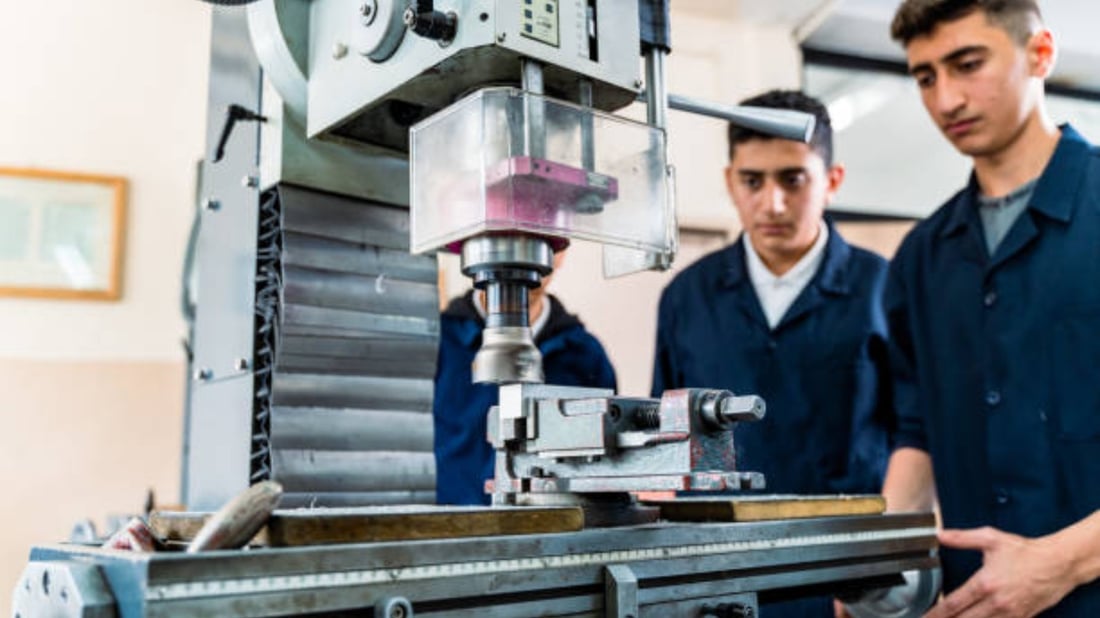Introduction
When it comes to CNC (Computer Numerical Control) machines, cabinets play a crucial role in ensuring optimal performance and functionality. cnc machine cabinets are specifically designed to house and protect the various components of these machines, such as the control panel, motors, and other delicate parts. In this comprehensive guide, we will explore everything you need to know about CNC machine cabinets, including their importance, types, materials, construction, and maintenance. So, let's dive in and discover how CNC machine cabinets can enhance the performance and longevity of your CNC machines.
The Importance of CNC Machine Cabinets
CNC machine cabinets serve several essential purposes in the operation of CNC machines:
- Protection: CNC machine cabinets provide a protective enclosure that shields the delicate internal components of the machine from dust, debris, and other contaminants.
- Noise Reduction: These cabinets are designed to minimize the noise generated by the CNC machine, creating a quieter working environment.
- Organization: CNC machine cabinets offer a dedicated space for storing tools, accessories, and spare parts, ensuring easy access and efficient organization.
- Security: By housing the CNC machine within a cabinet, you can minimize the risk of unauthorized access and protect your investment.
Types of CNC Machine Cabinets
CNC machine cabinets come in various types, each tailored to specific machine configurations and requirements:
1. Stand-Alone Cabinets
Stand-alone cabinets are freestanding units that provide complete enclosure and protection for the CNC machine. These cabinets often feature multiple compartments for storing tools and accessories, as well as built-in ventilation systems to ensure proper airflow and cooling.
2. Wall-Mounted Cabinets
Wall-mounted cabinets are ideal for saving space in smaller workshops. These cabinets are securely mounted on the wall, providing protection and storage without occupying valuable floor space.
3. Integrated Cabinets
Integrated cabinets are designed to be an integral part of the CNC machine itself. These cabinets are compact and seamlessly integrate with the machine's frame, offering a streamlined solution for space-conscious environments.
Materials Used in CNC Machine Cabinets
CNC machine cabinets are typically constructed using sturdy and durable materials that can withstand the demands of industrial environments. The most commonly used materials include:
1. Steel
Steel is a popular choice for CNC machine cabinets due to its strength, rigidity, and resistance to impact. Steel cabinets offer excellent protection against physical damage and provide a long-lasting solution for heavy-duty CNC machines.
2. Aluminum
Aluminum cabinets are lightweight yet robust, making them an excellent choice for CNC machines that require frequent relocation. Additionally, aluminum cabinets are resistant to corrosion, making them suitable for environments with high humidity or exposure to chemicals.
3. Wood
Wooden cabinets are commonly used in smaller-scale CNC machines or for hobbyist applications. While not as durable as steel or aluminum, wood cabinets can still provide adequate protection and a visually appealing aesthetic.
Construction of CNC Machine Cabinets
The construction of CNC machine cabinets involves several key considerations, including:
1. Ventilation
Proper ventilation is crucial to prevent overheating of the CNC machine's components. Cabinets are designed with ventilation systems, such as fans or air vents, to ensure a consistent flow of cool air and the removal of hot air.
2. Cable Management
An organized cable management system is essential for maintaining a neat and efficient workspace. Cabinets often feature cable routing options and cable management accessories to keep wires and cables organized and prevent tangling or accidental damage.
3. Access and Maintenance
CNC machine cabinets should provide easy access to the machine's internal components for maintenance and repairs. Removable panels, hinged doors, and quick-release mechanisms are commonly incorporated into cabinet designs to facilitate accessibility.
Maintenance of CNC Machine Cabinets
To ensure the longevity and optimal performance of CNC machine cabinets, regular maintenance is crucial. Here are some maintenance tips:
1. Cleaning
Regularly clean the cabinets to remove dust and debris that can accumulate over time. Use a soft cloth or vacuum cleaner to gently wipe or suction away any particles that may affect the performance of the machine.
2. Lubrication
Check and lubricate hinges, locks, and other moving parts to ensure smooth operation. Use appropriate lubricants recommended by the manufacturer to prevent corrosion and extend the lifespan of these components.
3. Inspection
Periodically inspect the cabinets for any signs of damage, such as dents, scratches, or loose fittings. Address any issues promptly to prevent further damage and maintain the integrity of the cabinet's protective capabilities.
Conclusion
CNC machine cabinets are an essential component of any CNC machine setup. They provide protection, organization, and security while contributing to a more efficient and productive working environment. By choosing the right type of cabinet, using suitable materials, and maintaining them properly, you can ensure the longevity and optimal performance of your CNC machines. Invest in high-quality CNC machine cabinets today and reap the benefits of a well-protected and organized workspace.

